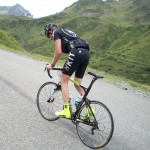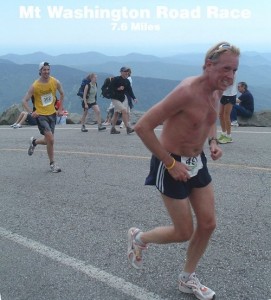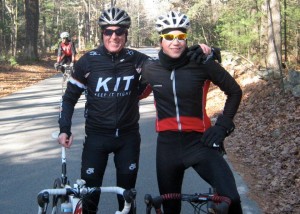By guest KIT blogger, Dave Andersen

Many of us have no problem training hard, but training without recovery leads to a downward spiral. I love recovery days because usually you are basking in the glow of a hard block of training or racing and the rest day(s) put BALANCE into your life. To understand the significance of recovery, you need to grasp the fundamental principles of progressive training overload. It’s important to have a training plan that incorporates not only higher degrees of stress (training) stimulus, but also consists of adequate bouts of recovery. And while you don’t always know how you’re going to respond to training, you’ll have a pretty good idea that if you’ve planned a hard training block, you’ll need to back it up with the appropriate amount of rest. But rest as needed, not as planned. Just be sure to plan to rest.
Train Hard, Recover Harder
I’m a student of endurance sports, and with over 35 years of training and racing experience I’ve learned a few things about recovery. Ultimately, movement is the best medicine we have, but it’s not enough in and of itself. You need to do whatever it takes (legally) to enhance recovery. Thankfully, most recovery-boosting options are free.
Sleeping. Thankfully, sleep is free of charge, and it recharges your batteries. Sleeping includes napping, a learned skill but one that helps release more of that ever-important human growth hormone, your body’s very own recovery drug. I’m not much for napping but I do sleep 9-10 hours every night.
Relaxing. Relaxing is also free, but it’s truly amazing how few people know how to do it. Sometimes it’s important to spend some time doing nothing, and perhaps even less. I mean, how great is it to do nothing and then rest afterward! Ask yourself: are you capable of doing nothing today?
Eating. The key thing with recovery-related nutrition is to know that your immediate recuperation needs depend on what you shove down your gullet (and when you do so) and that your long-term wellness also greatly depends on it. Food is the only source where we humans get our energy. Take in nutrients, not just stimulants.
Hydration. It’s crystal clear that rehydration is imperative when attempting to augment recovery. I often grab a chocolate milk or recovery drink as soon as I get home from training. For the rest of the day I’ll sip non-alcoholic beverages.
Massage. Use your hands or a foam roller or a device like The Stick.
Elevating. The heart pumps blood through the body, but it takes work. Elevate your performance by elevating your legs.
Compressing. Socks, calf sleeves, or tights. Whether or not it works, doesn’t matter. You should decide yourself, like with all things in life.
Warming-up and cooling-down. My bike rides always start and finish with 30-minutes easy. Follow your own common sense.
Stretching. Some studies show that stretching can speed recovery where others demonstrate absolutely nothing. If you believe it helps, keep doing it. If you’d rather not, keep doing that.
Fun. Laughter. Joy. Delight. Pleasure. Smiling. Happiness. Bliss. Ecstasy. Take part in these vital parts of being human and having a balanced lifestyle as often as possible, and you will recover more quickly.
I don’t know who said these words (below) first, but they seem appropriate when talking about rest and recovery:
Don’t run, if you can walk.
Don’t walk, if you can stand.
Don’t stand, if you can sit.
Don’t sit, if you can lie down, and
Don’t stay awake, if you can take a nap.
* David Andersen lives in Boston and works in the educational publishing business. He shares his passion for cycling and sport with a wide range of friends and competitors.

